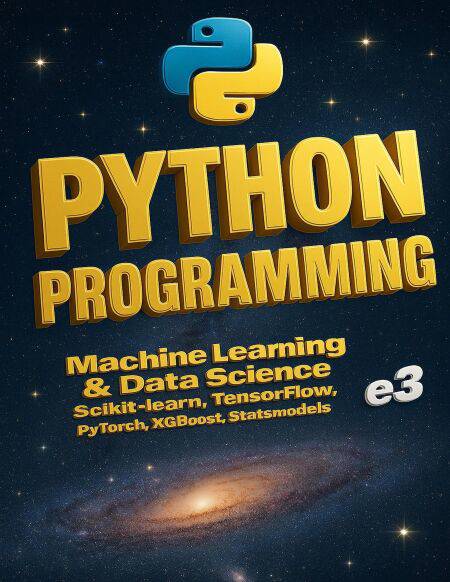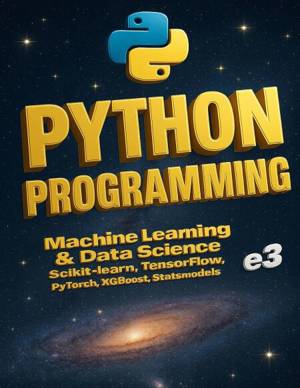
- Retrait gratuit dans votre magasin Club
- 7.000.000 titres dans notre catalogue
- Payer en toute sécurité
- Toujours un magasin près de chez vous
- Retrait gratuit dans votre magasin Club
- 7.000.0000 titres dans notre catalogue
- Payer en toute sécurité
- Toujours un magasin près de chez vous
Description
Book Description Machine learning is no longer a distant frontier reserved for data scientists and engineers in elite labs—it has become an essential toolkit for anyone seeking to derive insights from data, build predictive systems, or explore artificial intelligence. The landscape of machine learning is both vast and rapidly evolving, and understanding it requires more than just learning a few algorithms or copying code from tutorials. It requires a deep comprehension of core principles, preprocessing strategies, model building, evaluation techniques, and the ability to connect theoretical foundations with practical implementations. This book is designed to guide learners through the essential building blocks of machine learning, progressing from foundational preprocessing techniques to complex model evaluation and optimization strategies. Each section is crafted to demystify core concepts while grounding them in hands-on, real-world applications using Python libraries such as Scikit-learn. Whether you're a student, aspiring data scientist, or a professional seeking to strengthen your machine learning foundations, this book offers a structured and practical pathway. The journey begins with a deep dive into data preprocessing, exploring critical topics such as zero mean and unit variance normalization, min-max scaling, and the importance of thoughtful data transformation in ensuring model performance. Feature engineering is covered in detail, emphasizing its pivotal role in enhancing model accuracy and interpretability. Next, the book introduces Scikit-learn, the powerful Python library that simplifies many machine learning workflows. We present a clear overview of its structure, modules, and usage, ensuring that readers can effectively use it as a foundation for implementing models. We then move into the core algorithms of machine learning. Separate chapters are dedicated to logistic regression and linear regression, presenting both the theoretical underpinnings and practical applications using Scikit-learn. Each concept is explained in a step-by-step manner to bridge the gap between mathematical intuition and code implementation. The discussion continues with unsupervised learning techniques, including K-Means clustering and K-Nearest Neighbors, supported by intuitive explanations and practical examples. We also delve into decision trees, random forests, and support vector machines (SVMs)—key algorithms that power many real-world machine learning systems today. In the later sections, we address model evaluation and optimization, introducing techniques like cross-validation and grid search, which are essential for ensuring robust model performance and avoiding overfitting. Readers will gain the ability to not only build models but also to fine-tune and validate them effectively. Finally, the book briefly signals toward advanced frameworks such as TensorFlow, PyTorch, XGBoost, and Statsmodels, setting the stage for deeper exploration into deep learning, ensemble methods, and statistical modeling. This book is structured to be both accessible and comprehensive. Each chapter can be read independently, yet the sequence forms a coherent roadmap—from data preparation to model interpretation and optimization. We have taken care to provide examples, visualizations, and clear Python code to aid comprehension and encourage hands-on experimentation. It is our hope that this book will empower readers to not only learn machine learning but to think critically about data, make informed modeling decisions, and ultimately apply machine learning confidently in practical contexts. Welcome to your journey into the world of machine learning. — The Author
Les avis
Nous publions uniquement les avis qui respectent les conditions requises. Consultez nos conditions pour les avis.







